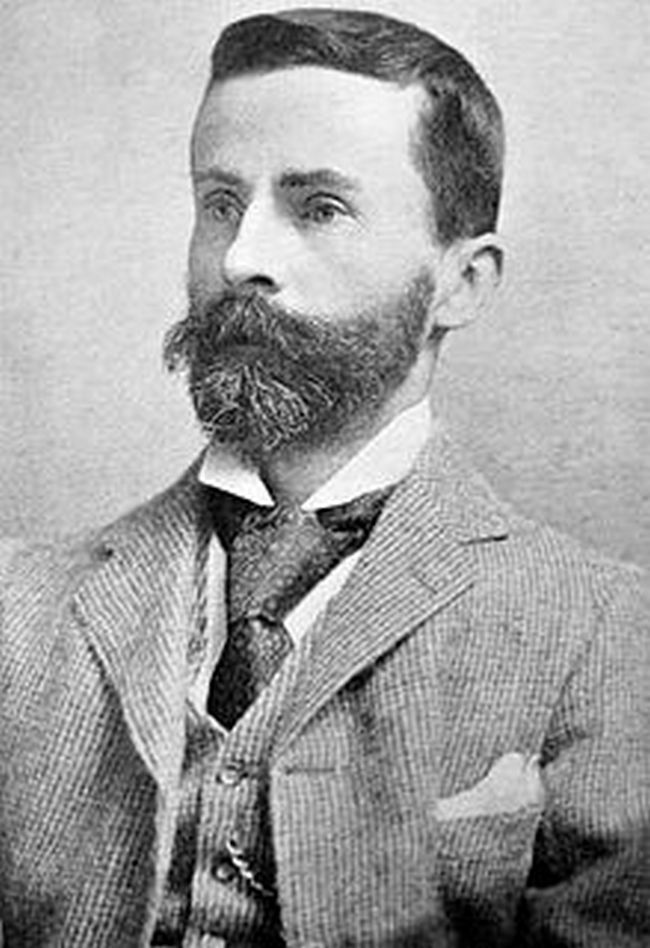Publications
Gypsy Folk Tales by Francis Hindes Groome
Francis Hindes Groome was one of the small group of 19th century folklorists who immersed themselves in Roma (Gypsy) life. Groome was born at his father’s rectory of Monk Soham on 30 August 1851. He was educated at Ipswich School, where his lifelong interest in Romanies was sparked, and continued at Oxford University. He left Oxford without taking a degree, spent some time at Göttingen, and then for 6 years lived with gypsies at home and abroad. He married a woman of Romani blood, Esmeralda Locke, in 1876 and settled in down to regular literary work in Edinburgh.
His article on ‘Gipsies’, in the ninth edition of the Encyclopædia Britannica, made him known to the world as a gypsyologist.[1] In 1899 he published his most significant book for folklorists, Gypsy Folk-Tales. These well-annotated collections are a significant addition to the comparative study of the world’s folktales. He also co-edited the first three volumes of Gypsy Lore Society’s Journal, and wrote nineteen brief articles and collections of folktales for it.
This book is a treasure trove of classic ‘Gypsyology’, and makes fascinating reading for everyone interested in the Roma people and folklore in general. These are not watered down ‘fairy tales,’ but sophisticated and often earthy stories, with ‘Adult situations.’ Groome edited this material with a very light hand, and made no attempt to correct plot holes or inconsistencies, as in the some of the more bowdlerized 19th century folklore books. He simply lets the story teller weave their spell on us.
The book consists of 9 chapters, where you can find stories of Roma from Turkey, Romania, Bucowina, Wales, England and other countries and regions. Here, we present one of Roma stories straight from Transylvania.
The Creation of the Violin
IN a hut on a mountain, in a fair forest, lived a girl with her four brothers, her father, and her mother. The sister loved a handsome rich huntsman, who often ranged the forest, but who would never speak to the pretty girl. Mara wept day and night, because the handsome man never came near her. She often spoke to him, but he never answered, and went on his way. She sang the song:
«Dear man from a far country,
Slip your hand into mine;
Clasp me, an you will, in your arms;
Lovingly will I kiss you»
She sang it often and often, but he paid no heed. Knowing now no other succour, she called the devil. ‘O devil, help me.’ The devil came, holding a mirror in his hand, and asked what she wanted. Mara told him her story and bemoaned to him her sorrow. ‘If that’s all,’ said the devil, ‘I can help you. I’ll give you this. Show it to your beloved, and you’ll entice him to you.’ Once again came the huntsman to the forest, and Mara had the mirror in her hand and went to meet him. When the huntsman saw himself in the mirror, he cried, ‘Oh! that’s the devil, that is the devil’s doing; I see myself.’ And he ran away, and came no more to the forest.
Mara wept now again day and night, for the handsome man never came near her.; Knowing now no other succour for her grief, she called again the devil. ‘O devil, help me.’ The devil came and asked what she wanted. Mara told how the huntsman had run away, when he saw himself in the mirror. The devil laughed and said, ‘Let him run, I shall catch him; like you, he belongs to me. For you both have looked in the mirror, and whoso looks in the mirror is mine. And now I will help you, but you must give me your four brothers, or help you I cannot.’ The devil went away and came back at night, when the four brothers slept, and made four strings of them, fiddle-strings–one thicker, then one thinner, the third thinner still, and the thinnest the fourth.
Then said the devil, ‘Give me also your father.’ Mara said, ‘Good, I give you my father, only you must help me.’ Of the father the devil made a box: that was the fiddle. Then he said, ‘Give me also your mother.’ Mara answered, ‘Good, I give you also my mother, only you must help me.’ The devil smiled, and made of the mother a stick, and horsehair of her hair: this was the fiddle-stick. Then the devil played, and Mara rejoiced. But the devil played on and on, and Mara wept. Now laughed the devil and said, ‘When your beloved comes, play, and you will entice him to you.’ Mara played, and the huntsman heard her playing and came to her.
In nine days came the devil and said, ‘Worship me, I am your lord.’ They would not, and the devil carried them off. The fiddle remained in the forest lying on the ground, and a poor Gypsy came by and saw it. He played, and as he played in thorp and town they laughed and wept just as he chose.
The materials which were used:
https://en.wikipedia.org/wiki/Francis_Hindes_Groome
http://www.sacred-texts.com/neu/roma/gft/



